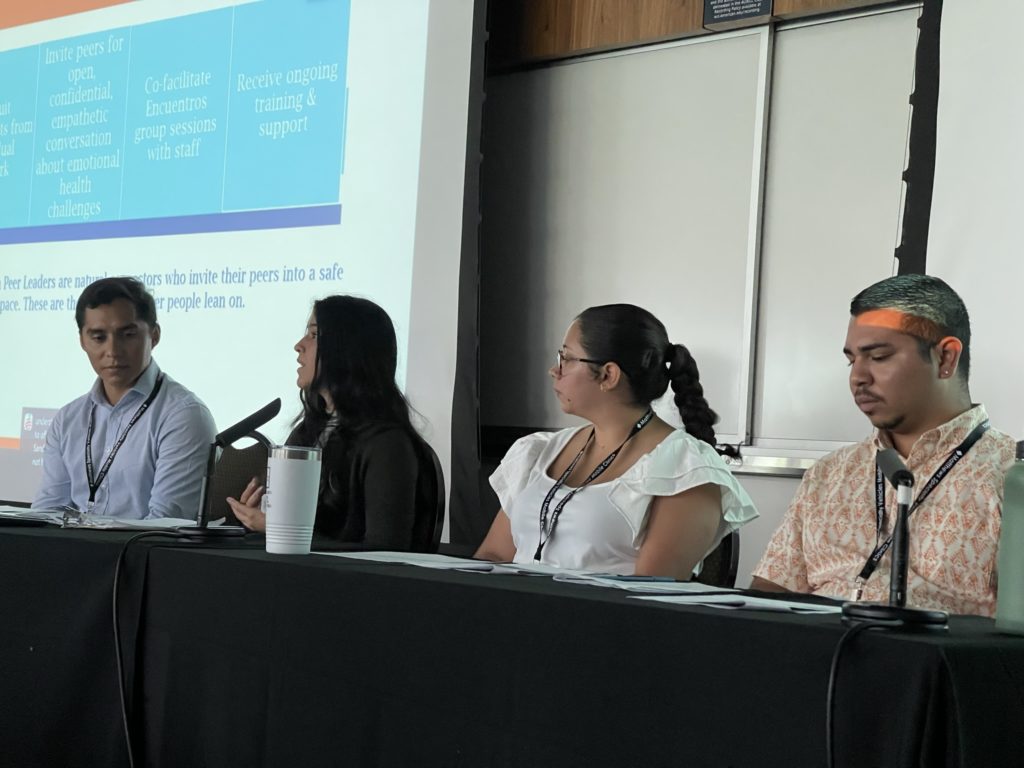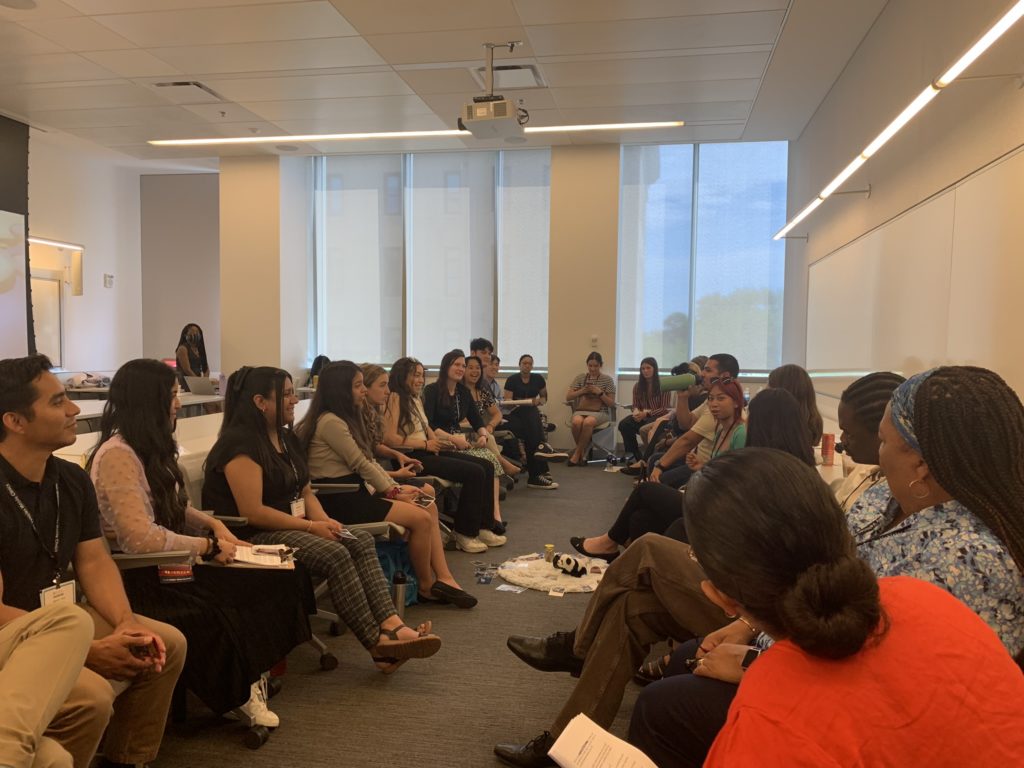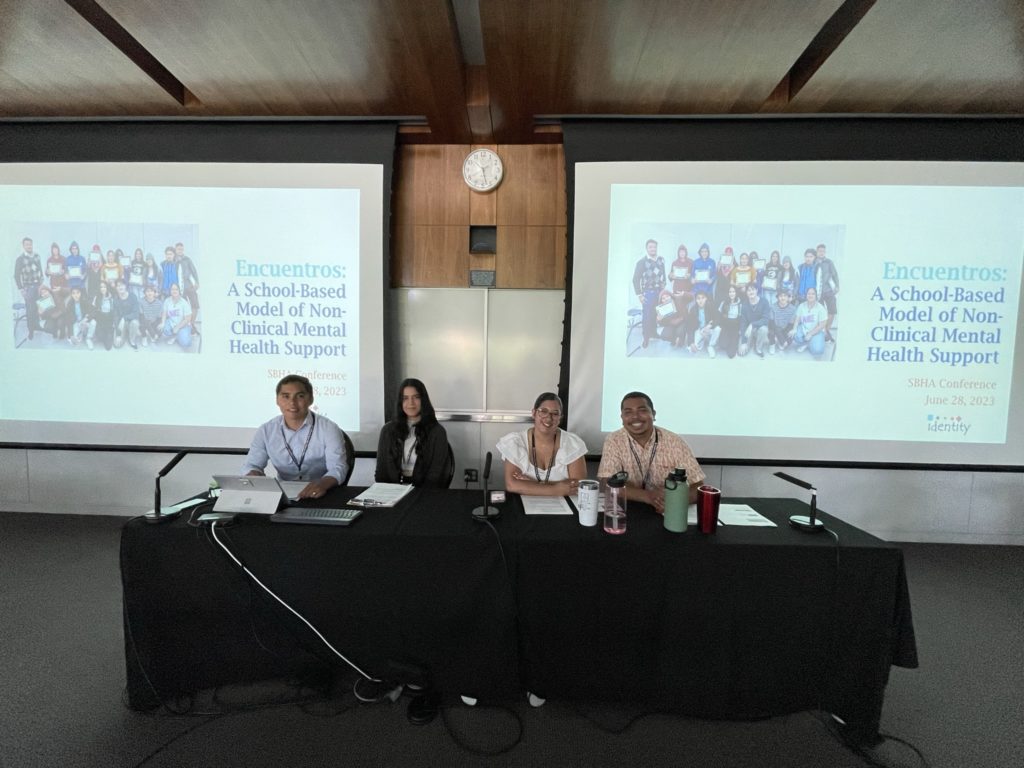Identity youth and program facilitators showcased our Encuentros program in front of a national audience at the 2023 National School-Based Health Care Conference in Washington, D.C. Encuentros is our non-clinical peer-led emotional support program. Through an interactive workshop and panel presentation, Identity staff and Youth Peer Leaders demonstrated how Latino and other historically underserved youth in Montgomery County are serving as agents of change by helping their peers manage difficult emotions related to immigration, family separation and the pandemic.
The workshop explored how Encuentros is empowering youth to play a healing role for their peers and community. Designed in response to the youth mental health crisis, the Encuentros program provides young people a safe space to engage in open, honest discussion about mental health challenges and share skills and strategies for managing them. As part of our community-led approach, Identity is training former Encuentros participants to co-facilitate the groups as Youth Peer Leaders with support from Identity staff.
The workshop allowed young people from across the country to experience this promising curriculum-based model of culturally responsive, trauma-informed peer support for themselves. Youth Peer Leaders Enrique Mejia Alarcon and Sandra Mejia Rodriguez facilitated a mock Encuentros group with several hands-on activities focused on stress, anxiety and depression; trauma and resilience; and self-care.
The second session featured a panel discussion between Youth Peer Leader Sandra Mejia Rodriguez, Daniela Delgado, and Erik Barrios, a mental health therapist and former Identity staff member. The conversation was moderated by Marvin Jovel, manager of the Wellness Center at Wheaton High School. The panelists gave an overview of how Encuentros is helping young people at Wheaton High School develop skills and healthy coping strategies needed to manage stress, anxiety, grief, despair and other difficult emotions. They described the evolution of the program and curriculum, and how its early successes have led to its adoption as a school-based model for culturally responsive, trauma-informed non-clinical mental health support at several public high schools in Montgomery County, MD.
Sandra then described her journey from participant to co-facilitator, showcasing how the active involvement of youth in program delivery can contribute to the success of community-based mental health programs. “Before joining Encuentros I was very shy, but the program helped me to come out of my shell and be more open, while also growing and learning from other students,” she told the audience. “Being part of Encuentros, not only as a participant, but now also as a Youth Peer Leader, has helped me to support my younger sister, my family, and my friends.”
Over the past three years, Identity has partnered with the community and the University of Maryland School of Public Health to evaluate and refine the Encuentros program. Staff and Youth Peer Leaders receive clinical supervision and regular trainings, and licensed mental health therapists offer one-to-one therapy to students referred from the groups. The program is made possible, in part, by support from Montgomery County Department of Health and Human Services and Latino Health Initiative, the University of Maryland, the Healthcare Initiative Foundation, CareFirst BlueCross BlueShield, Giving Together, Adventist Healthcare, the Mead Family Foundation and the Annie E. Casey Foundation.
“It’s incredible to see the impact that Encuentros made on these young people, and it’s incredible to see them being able to take those skills back home—or anywhere in their lives—and continuing to grow through those experiences,” says Encuentros facilitator Daniela Delgado. “It’s really important to continue providing this safe space for students and families to share their experiences and to talk about challenges that they are facing.”





